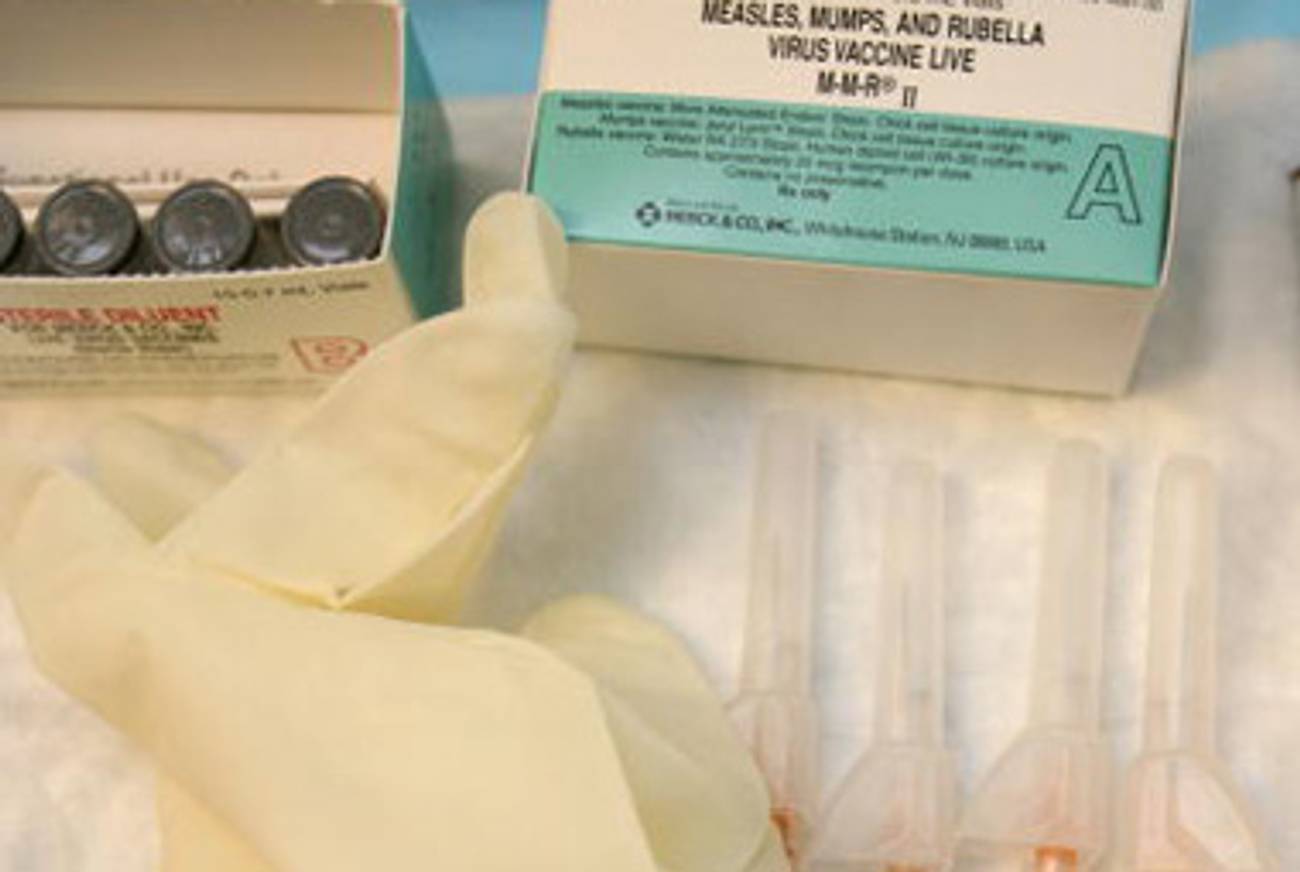Measles Rash
Immunization fears lead to another outbreak among New York’s ultra-Orthodox




Measles is one of those childhood diseases that, like polio, has been all but eradicated in the United States, thanks to decades of aggressive government vaccination efforts. But New York’s ultra-Orthodox neighborhoods are suffering through their second outbreak in as many years—the direct result of large numbers of unvaccinated children being exposed to regular visitors from the far-flung corners of the Hasidic world, where measles still exists.
Health officials say that ultra-Orthodox parents in Brooklyn are as susceptible as their crunchier counterparts to the belief that there may be a causal link between the measles-mumps-rubella vaccine and autism. (Public health officials say there is no evidence to support the claim.) The kids of most skeptics serve as free riders, staying clear of the infection because most other children they come in contact with are vaccinated and safe. But the tendency of Hasidic parents to wait far beyond the recommended 12-month vaccination deadline produces a large pool of potential victims for viruses trafficked by unvaccinated—and frequently visiting—kids from Israel and Europe. “Herd immunity can’t protect you if you’ve got a case in there and a large pocket of unvaccinated people,” said Jane Seward, deputy director of the division of viral diseases of the Centers for Disease Control in Atlanta. “It just ignites.”
Health officials haven’t been able to identify the source of this year’s infections, which have cropped up in Borough Park and Williamsburg, two of Brooklyn’s most observant neighborhoods. Investigators believe it could have been introduced by travelers from Antwerp or London, both cities with large ultra-Orthodox communities and endemic measles. A dozen people, including nine children between eight months and four years old, have fallen ill so far.
Last year’s outbreak, New York’s largest in 15 years, produced more than two dozen victims. A handful of visitors from Israel, which was in the midst of a months-long outbreak that sickened more than 1,000 people, brought the disease with them and passed it on, mainly to unvaccinated toddlers. The rash of infections was concentrated in Borough Park, but the scare spread to a Long Island mall and to a wedding hall in Rockland County, north of New York City.
Outbreaks have cropped up elsewhere. Last year, a dozen children in San Diego were infected (and dozens more quarantined) after an unvaccinated child returning from a family vacation in Switzerland passed the disease on to classmates whose parents had refused to inoculate in their all-organic earnestness.
But New York, unlike California, doesn’t allow parents to exempt their children from vaccination on the basis of personal belief, and 92 percent of children, including those in the ultra-Orthodox community, are vaccinated by the time they reach school age. New York health officials say they are instead seeing a watered-down version of the anti-vaccination trend, in which parents don’t inoculate until they can be sure their children don’t have autism, at around age two or three. “Out of an abundance of caution they just wait,” said Jane Zucker, New York City’s assistant commissioner for immunization. “They’re happy to get the child vaccinated for school but not before.” That risk is then exacerbated by a widespread reliance on homeopathic medicine and, in some cases, lax oversight by private yeshiva schools, said Moshe Tendler, Yeshiva University’s professor of Jewish medical ethics.
Zucker said she was satisfied with compliance from Jewish schools, and said her office has distributed flyers in ultra-Orthodox neighborhoods and cultivated help from community members to encourage parents to vaccinate on time, when their children are about a year old. Within the local ultra-Orthodox community, some lay the blame on their Israeli counterparts, whose long history of resistance to government-mandated programs includes vaccination drives, and was a factor in the outbreak that began in 2007 in Jerusalem and Bnei Brak, before spreading to New York last year. “It all started when the Yerishalmys [Jerusalemites] refused to take shots to prevent it from spreading further,” wrote one commenter last year on the Yeshiva World News website, triggering a heated debate.
But Tendler said it was ultimately the responsibility of parents to follow best medical practice for their children. “If they don’t vaccinate, they are in violation of Torah law by not following the best medical advice,” he said. “The responsibility of the parent is to listen to the doctor and then pray to God, because to pray to God and not listen to the doctor is not going to help.”
Allison Hoffman is a senior editor at Tablet Magazine. Her Twitter feed is @allisont_dc.
Allison Hoffman is a senior editor at Tablet Magazine. Her Twitter feed is @allisont_dc.